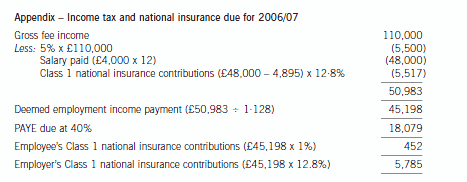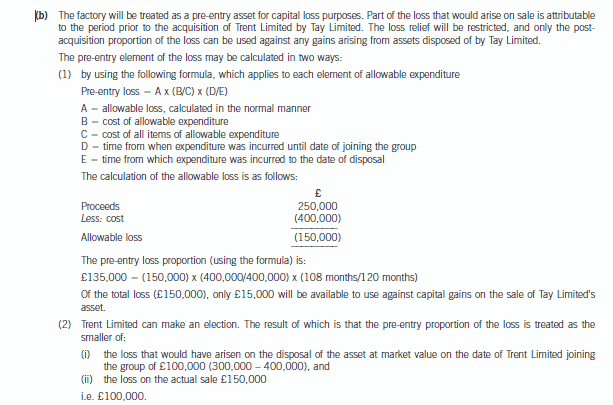新疆考生注意啦!你对ACCA了解多少呢?看了这些让你明白
发布时间:2020-01-09
2020年,目前风靡全球的ACCA证书许多人都听说过,但真正了解它的人或许是少之又少的,它是从事会计行业的会计人梦寐以求的证书,据说拿到了ACCA证书的人生活质量都得到了极大的提升,那么ACCA国际会计师到底是什么呢?它是有什么魔力让成千上万的人争相报考呢?且随51题库考试学习网一起了解一下吧。
ACCA证书是什么?
ACCA在国内被称为"国际注册会计师",是全球含金量高的财会金融领域的证书之一,在国际上的认可范围很广的财务人员资格证书。ACCA全称:英国特许公认会计师公会(The Association of Chartered Certified Accountants)。
ACCA证书的优点是什么?
他的优点分为以下几类:首先是在报名条件上门槛不高,不像国内其他类似的高级会计师一样有报考专业和工作年限的要求,它的报考并无专业限制;
其次,它的知识架构完整且基础,即便是无财会背景人士通过学习可以了解财务领域所有知识与技能;
最后,ACCA证书认可雇主皆为全球五百强企业。
拥有ACCA认证,就拥有了全球求职"通行证"
在培养方式的优势:
重视逻辑思维的培养
西方人重视考生逻辑思维,不同于国内的考试的是,在ACCA考试中,答题时需要表明个人观点与论据,并且在观点与论据中不能存在逻辑矛盾。比如分析事件内部与外部环境对它有什么影响,这些影响中哪些是可以控制的,哪些是不可以控制的,有哪些有利和不利的情况,不利的情况哪些是可以避免的,哪些是可以减少的等等。通过细分的分析,可以对一个事件有一个清晰的轮廓。
ACCA协会提倡和鼓励学员从战略角度思考问题,并且充当一位完美主义者。由于ACCA协会重在培养财务管理人才,在真实的工作岗位中,并不仅仅是需要面对会计知识领域事件,因此培养个人战略眼光是非常重要的,这也是他们的核心价值的体现。在学习过程中,从基本的逻辑分析入手,培养自己在复杂环境下的决策、判断和心理承受能力,这些能力的养成可通过教材中的大量案例的反复研究。经过一段学习之后,所影响的不仅仅是自我的知识感官,更加是生活感悟。
培养开放性思维
在ACCA考试的第三阶段,判分很宽松,这就是跟国内考试最大的差别,国内考试只要跟标准答案有出入你的回答就是错误的,而对于ACCA考试而言,考生相应就有了自由表达的空间。考官提供的答案也仅仅是参考答案,只要考生的回答在逻辑关系上言之成理,内容上言之有物,且与所问的题目相关,评分的专家大笔一挥就给分了。因此,小编提醒大家,到了第三阶段,思维一定要开放,不仅可以运用本门课程所学的知识,其他课程学习的知识甚至平常积累的知识都可以搬上来,思路越开阔,写的东西越贴近论点,得分就越高。
注重积累实践经验
平时注重积累实践经验, 采用各种方式了解会计、审计、财务管理和管理信息系统的实际运转流程, 这对ACCA的备考很有帮助。同时利用这个宝贵的学习机会,可以了解到国际的会计、审计和管理知识,接受国际上的教育,使自己开阔眼界,提高素质,更好地开展审计工作。一举两得,何乐而不为呢?
看完以上的这些信息之后,相信大家对ACCA国际注册师也有了一定的了解,对此类考试感兴趣的小伙伴们可以持续关注51题库考试学习网哟~
下面小编为大家准备了 ACCA考试 的相关考题,供大家学习参考。
6 Charles and Jane Miro, aged 31 and 34 years respectively, have been married for ten years and have two children
aged six and eight years. Charles is a teacher but for the last five years he has stayed at home to look after their
children. Jane works as a translator for Speak Write Ltd.
Speak Write Ltd was formed and began trading on 6 April 2006. It provides translation services to universities. Jane,
who ceased employment with Barnham University to found the company, owns 100% of its ordinary share capital
and is its only employee.
Speak Write Ltd has translated documents for four different universities since it began trading. Its biggest client is
Barnham University which represents 70% of the company’s gross income. It is estimated that the company’s gross
fee income for its first 12 months of trading will be £110,000. Speak Write Ltd usually agrees fixed fees in advance
with its clients although it charges for some projects by reference to the number of days taken to do the work. None
of the universities makes any payment to Speak Write Ltd in respect of Jane being on holiday or sick.
All of the universities insist that Jane does the work herself. Jane carries out the work for three of the universities in
her office at home using a computer and specialised software owned by Speak Write Ltd. The work she does for
Barnham University is done in the university’s library on one of its computers as the documents concerned are too
delicate to move.
The first set of accounts for Speak Write Ltd will be drawn up for the year ending 5 April 2007. It is estimated that
the company’s tax adjusted trading profit for this period will be £52,500. This figure is after deducting Jane’s salary
of £4,000 per month and the related national insurance contributions but before any adjustments required by the
application of the personal service companies (IR 35) legislation. The company has no other sources of income or
capital gains.
Jane has not entered into any communication with HM Revenue and Customs (HMRC) with respect to the company
and wants to know:
– When the corporation tax computation should be submitted and when the tax is due.
– When the corporation tax computation can be regarded as having been agreed by HMRC.
Charles and Jane have requested a meeting to discuss the family’s finances. In particular, they wish to consider the
shortfall in the family’s annual income and any other related issues if Jane were to die. Their mortgage is covered
by a term assurance policy but neither of them have made any pension contributions or carried out any other long
term financial planning.
Jane has estimated that her annual after tax income from Speak Write Ltd, on the assumption that she extracts all of
the company’s profits, will be £58,000. Charles owns two investment properties that together generate after tax
income of £8,500. He estimates that he could earn £28,000 after tax if he were to return to work.
The couple’s annual surplus income, after payment of all household expenditure including mortgage payments of
£900 per month, is £21,000. Charles and Jane have no other sources of income.
Required:
(a) Write a letter to Jane setting out:
(i) the arguments that HMRC could put forward, based only on the facts set out above, in support of
applying the IR 35 legislation to Speak Write Ltd; and
(ii) the additional income tax and national insurance contributions that would be payable, together with
their due date of payment, if HMRC applied the IR 35 legislation to all of the company’s income in
2006/07. (11 marks)


(c) Prepare brief notes for the proposed meeting with Charles and Jane. Clearly identify the further information
you would need in order to advise them more fully and suggest appropriate personal financial planning
protection products, in respect of both death and serious illness. (9 marks)
You should assume that the income tax rates and allowances for the tax year 2005/06 and the corporation tax
rates for the financial year 2005 apply throughout this question.

When considering the shortfall
– The family’s expenditure is likely to increase as the children get older, particularly if there is a need for school fees.
– There will be a need for some cash immediately to pay for the cost of the funeral.
– It is assumed that the whole of Jane’s estate has been left to Charles such that there will be no inheritance tax on her
death.
– The shortfall may be reduced by:
(i) State benefits and tax credits.
(ii) Expenditure on non-essential items, e.g. holidays and entertainment included in the annual expenditure of
£45,500.
(iii) The income generated by Charles if he were to return to work.
– The shortfall may be increased by additional child-care costs due to Charles being a single parent, particularly if he
returns to work full-time.
Further information required
– The level of state benefits and tax credits available to Charles.
– The current level of expenditure on non-essential items.
– The costs of child-care if Charles were to return to work.
– Details of any wills made by Charles or Jane.
– Whether Charles’ investment properties could be sold and the proceeds invested in assets with a higher annual return.
– Whether there is any value in Speak Write Ltd independent of Jane, such that the company could be sold after Jane’s
death.
Other related issues
– The couple should consider making provision for their retirement via pension contributions or some other form. of long
term investment plan.
– The couple should recognise that there would be significant financial problems if Jane were to become seriously ill. In
addition to the family’s income falling as set out above, its expenditure would probably increase.
Protection products
– Term life assurance
A qualifying life policy would pay out a tax-free lump sum on Jane’s death.
– Permanent health insurance
Would provide a regular income if Jane were unable to work due to illness.
– Critical illness insurance
Would provide a capital sum in the event of Jane being diagnosed with an insured illness.
(d) Prepare the statement for Mr Markovnikoff to read out at the AGM. The statement you construct should
contain the following.
(i) A definition and brief explanation of ‘sustainable development’; (3 marks)
(d) Chairman’s statement at AGM
Thank you for coming to the annual general meeting of Rowlands & Mendeleev. I would like to make a statement in response
to the concerns that a number of our investors have made in respect to our appointment as the principal contractor for the
prestigious and internationally important Giant Dam Project. We are very pleased and honoured to have won the contract but
as several have observed, this does leave us in a position of having a number of issues and risks to manage.
As a project with obvious environmental implications, the board and I wish to reassure investors that we are aware of these
implications and have taken them into account in our overall assessment of risks associated with the project.
(i) A definition of ‘sustainable development’
One investor asked if we could explain the sustainability issues and I begin with addressing that issue. According to the
well-established Brundtland definition, sustainable development is development that meets the needs of the present
without compromising the ability of future generations to meet their own needs.
This definition has implications for energy, land use, natural resources and waste emissions. In a sustainable
development, all of these should be consumed or produced at the same rate they can be renewed or absorbed so as to
prevent leaving future generations with an unwanted legacy of today’s economic activity. We believe that our involvement
in the Giant Dam Project has implications for environmental sustainability and it is to these matters that I now turn.
Tutorial note: other relevant definitions of sustainability will be equally acceptable.
(b) Advise on the capital gains implications should Trent Limited’s old building be sold as proposed. Support your
advice with relevant calculations. (4 marks)

This gives a higher post-entry loss of £50,000 (150,000 – 100,000) and so it is advisable for Trent Limited to make
this election.
The £100,000 of pre-entry losses are still available, but can only be set against gains on assets which:
(i) Trent Limited sold prior to being acquired (subject to the normal carry back restrictions), or
(ii) Trent Limited already owned when it was acquired, or
(iii) Trent Limited acquired from outside the group and used in its trade after being bought by Tay Limited.
声明:本文内容由互联网用户自发贡献自行上传,本网站不拥有所有权,未作人工编辑处理,也不承担相关法律责任。如果您发现有涉嫌版权的内容,欢迎发送邮件至:contact@51tk.com 进行举报,并提供相关证据,工作人员会在5个工作日内联系你,一经查实,本站将立刻删除涉嫌侵权内容。
- 2020-01-10
- 2020-01-15
- 2020-03-07
- 2020-01-14
- 2020-01-10
- 2020-09-03
- 2020-04-10
- 2020-05-13
- 2020-05-13
- 2020-03-27
- 2020-01-29
- 2020-02-05
- 2020-02-18
- 2020-03-07
- 2020-05-06
- 2020-01-31
- 2020-01-10
- 2020-03-13
- 2020-05-02
- 2020-01-10
- 2020-04-04
- 2020-01-10
- 2020-01-10
- 2021-01-06
- 2019-07-20
- 2020-03-07
- 2020-04-08
- 2020-02-12
- 2019-12-28
- 2020-04-08